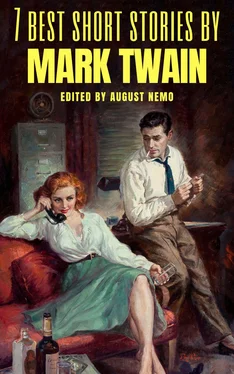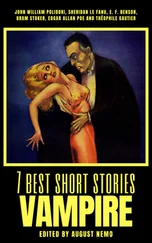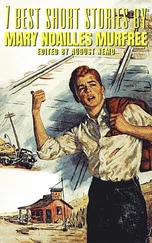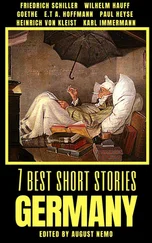Samuel Langhorne Clemens (November 30, 1835 – April 21, 1910), known by his pen name Mark Twain, was an American writer, humorist, entrepreneur, publisher, and lecturer. He was lauded as the "greatest humorist the United States has produced," and William Faulkner called him "the father of American literature". His novels include The Adventures of Tom Sawyer (1876) and its sequel, the Adventures of Huckleberry Finn (1884), the latter often called "The Great American Novel".
Twain was raised in Hannibal, Missouri, which later provided the setting for Tom Sawyer and Huckleberry Finn. He served an apprenticeship with a printer and then worked as a typesetter, contributing articles to the newspaper of his older brother Orion Clemens. He later became a riverboat pilot on the Mississippi River before heading west to join Orion in Nevada. He referred humorously to his lack of success at mining, turning to journalism for the Virginia City Territorial Enterprise. His humorous story, "The Celebrated Jumping Frog of Calaveras County", was published in 1865, based on a story that he heard at Angels Hotel in Angels Camp, California, where he had spent some time as a miner. The short story brought international attention and was even translated into French. His wit and satire, in prose and in speech, earned praise from critics and peers, and he was a friend to presidents, artists, industrialists, and European royalty.
Twain earned a great deal of money from his writings and lectures, but he invested in ventures that lost most of it—such as the Paige Compositor, a mechanical typesetter that failed because of its complexity and imprecision. He filed for bankruptcy in the wake of these financial setbacks, but in time overcame his financial troubles with the help of Henry Huttleston Rogers. He eventually paid all his creditors in full, even though his bankruptcy relieved him of having to do so. Twain was born shortly after an appearance of Halley's Comet, and he predicted that he would "go out with it" as well; he died the day after the comet made its closest approach to the Earth.
Mark Twain; The Licensed Jester
By George Orwell1
Mark Twain has crashed the lofty gates of the Everyman library, but only with Tom Sawyer and Huckleberry Finn, already fairly well known under the guise of 'children's books' (which they are not). His best and most characteristic books, Roughing It, The Innocents at Home, and even Life on the Mississippi, are little remembered in this country, though no doubt in America the patriotism which is everywhere mixed up with literary judgement keeps them alive.
Although Mark Twain produced a surprising variety of books, ranging from a namby-pamby 'life' of Joan of Arc to a pamphlet so obscene that it has never been publicly printed, all that is best in his work centres about the Mississippi river and the wild mining towns of the West. Born in 1835 (he came of a Southern family, a family just rich enough to own one or perhaps two slaves), he had had his youth and early manhood in the golden age of America, the period when the great plains were opened up, when wealth and opportunity seemed limitless, and human beings felt free, indeed were free, as they had never been before and may not be again for centuries. Life On The Mississippi and the two other books that I have mentioned are a ragbag of anecdotes, scenic descriptions and social history both serious and burlesque, but they have a central theme which could perhaps be put into these words: 'This is how human beings behave when they are not frightened of the sack.' In writing these books Mark Twain is not consciously writing a hymn to liberty. Primarily he is interested in 'character', in the fantastic, almost lunatic variations which human nature is capable of when economic pressure and tradition are both removed from it. The raftsmen, Mississippi pilots, miners and bandits whom he describes are probably not much exaggerated, but they are as different from modern men, and from one another, as the gargoyles of a medieval cathedral. They could develop their strange and sometimes sinister individuality because of the lack of any outside pressure. The State hardly existed, the churches were weak and spoke with many voices, and land was to be had for the taking. If you disliked your job you simply hit the boss in the eye and moved further west; and moreover, money was so plentiful that the smallest coin in circulation was worth a shilling. The American pioneers were not supermen, and they were not especially courageous. Whole towns of hardy gold miners let themselves be terrorized by bandits whom they lacked the public spirit to put down. They were not even free from class distinctions. The desperado who stalked through the streets of the mining settlement, with a Derringer pistol in his waistcoat pocket and twenty corpses to his credit, was dressed in a frock coat and shiny top-hat, described himself firmly as a 'gentleman' and was meticulous about table manners. But at least it was not the case that a man's destiny was settled from his birth. The 'log cabin to White House' myth was true while the free land lasted. In a way, it was for this that the Paris mob had stormed the Bastille, and when one reads Mark Twain, Bret Harte and Whitman it is hard to feel that their effort was wasted.
However, Mark Twain aimed at being something more than a chronicler of the Mississippi and the Gold Rush. In his own day he was famous all over the world as a humorist and comic lecturer. In New York, London, Berlin, Vienna, Melbourne and Calcutta vast audiences rocked with laughter over jokes which have now, almost without exception, ceased to be funny. (It is worth noticing that Mark Twain's lectures were only a success with Anglo-Saxon and German audiences. The relatively grown-up Latin races—whose own humour, he complained, always centred round sex and politics—never cared for them.) But in addition, Mark Twain had some pretensions to being a social critic, even a species of philosopher. He had in him an iconoclastic, even revolutionary vein which he obviously wanted to follow up and yet somehow never did follow up. He might have been a destroyer of humbugs and a prophet of democracy more valuable than Whitman, because healthier and more humorous. Instead he became that dubious thing a 'public figure', flattered by passport officials and entertained by royalty, and his career reflects the deterioration in American life that set in after the Civil War.
Mark Twain has sometimes been compared with his contemporary, Anatole France. This comparison is not so pointless as it may sound. Both men were the spiritual children of Voltaire, both had an ironical, sceptical view of life, and a native pessimism overlaid by gaiety; both knew that the existing social order is a swindle and its cherished beliefs mostly delusions. Both were bigoted atheists and convinced (in Mark Twain's case this was Darwin's doing) of the unbearable cruelty of the universe. But there the resemblance ends. Not only is the Frenchman enormously more learned, more civilized, more alive aesthetically, but he is also more courageous. He does attack the things he disbelieves in; he does not, like Mark swain, always take refuge behind the amiable mask of the 'public figure' and the licensed jester. He is ready to risk the anger of the Church and to take the unpopular side in a controversy—in the Dreyfus case, for example. Mark Twain, except perhaps in one short essay 'What is Man?', never attacks established beliefs in a way that is likely to get him into trouble. Nor could he ever wean himself from the notion, which is perhaps especially an American notion, that success and virtue are the same thing.
In Life on the Mississippi there is a queer little illustration of the central weakness of Mark Twain's character. In the earlier part of this mainly autobiographical book the dates have been altered.
Читать дальше

![Коллектив авторов - Best Short Stories [С англо-русским словарем]](/books/26635/kollektiv-avtorov-best-short-stories-s-anglo-thumb.webp)










